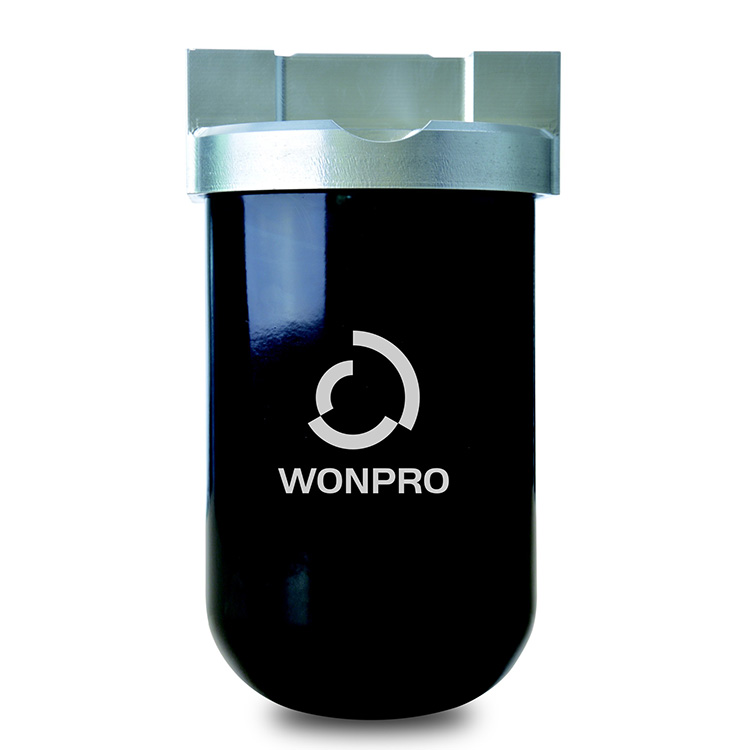Oil Filters: Essential Components for Vehicle Health
2025-03-22
When it comes to vehicle maintenance, one of the most overlooked yet crucial components is the oil filter. While it may seem like a small part, the oil filter plays an essential role in ensuring that your engine runs smoothly and efficiently. Without it, your engine would be exposed to contaminants that could cause significant damage over time. In this blog, we will dive into the importance of oil filters, how they work, and why regular oil filter changes are vital for the longevity of your vehicle.
What is an Oil Filter?
An oil filter is a device designed to remove contaminants from engine oil, transmission oil, lubricating oil, and hydraulic oil. In vehicles, the oil filter works alongside the engine’s oil system, which is responsible for lubricating the engine's moving parts. As the oil circulates through the engine, it picks up dirt, metal particles, and other debris that can cause wear and tear. The oil filter traps these particles, ensuring that only clean oil is circulated back into the engine. This helps maintain the engine’s performance and prevents damage.
How Does an Oil Filter Work?
An oil filter works through a simple filtration process. The engine oil is pumped through the filter, which contains a filtering medium (usually paper, synthetic fiber, or metal mesh). As the oil flows through, contaminants such as dirt, dust, soot, and metal shavings are trapped in the filtering medium. The clean oil then continues its journey back into the engine to lubricate the moving parts.
There are two main types of oil filters:
1. Full Flow Oil Filters: These filters capture all the engine oil that passes through them, ensuring that the entire oil system is cleaned. This type of filter is most commonly found in modern vehicles.
2. Bypass Oil Filters: These filters allow some of the oil to bypass the filter and flow through the engine. This type of filter is typically used in older engine designs or in systems with higher oil capacities.
Why Are Oil Filters Important?
Oil filters are important for several reasons, all of which contribute to the overall health and efficiency of your engine.
1. Prevent Engine Wear: The main function of the oil filter is to remove contaminants that can cause friction and wear on engine parts. Without a filter, dirt and debris would cause the moving parts of the engine to rub against each other, leading to premature wear and possible engine failure.
2. Improved Engine Performance: Clean oil flows more smoothly through the engine, improving its performance. A clogged or dirty oil filter can restrict the flow of oil, causing the engine to overheat or perform inefficiently.
3. Extended Engine Life: Regular oil filter changes are one of the best ways to extend the lifespan of your engine. By ensuring that the oil is kept clean and free from contaminants, the engine remains in good working order for a longer period, reducing the likelihood of costly repairs or replacements.
4. Prevents Clogging and Damage: Over time, oil filters accumulate contaminants and can become clogged. A clogged filter can lead to a lack of oil circulation, which could cause the engine to seize. Changing the oil filter at regular intervals prevents this from happening and ensures that the engine continues to run smoothly.
5. Maintains Oil Efficiency: An oil filter helps to keep the engine oil working efficiently. By removing contaminants, the oil remains cleaner for longer, which means fewer oil changes are required, and the oil’s lubricating properties remain effective.
Signs Your Oil Filter Needs to Be Changed
Knowing when to replace your oil filter is essential to maintaining your vehicle's health. Here are some signs that your oil filter may need to be changed:
- Oil Pressure Warning Light: If your vehicle’s oil pressure warning light comes on, it could indicate that the oil filter is clogged or the oil pressure is low.
- Engine Noise: If the engine starts to make unusual noises, it could be a sign that the oil is not circulating properly due to a clogged filter.
- Excessive Exhaust Smoke: If you notice more exhaust smoke than usual, it may be a sign that the engine is not being properly lubricated due to a dirty or blocked oil filter.
- Frequent Oil Changes: If you find that you are changing your oil more frequently than recommended, it could be because the oil filter is not doing its job effectively.
How Often Should You Change Your Oil Filter?
The general rule of thumb is to replace the oil filter every time you change your oil. For most vehicles, this is recommended every 3,000 to 5,000 miles, depending on the type of oil used and the manufacturer’s recommendations. However, some modern vehicles with advanced engines and synthetic oils can go much longer between oil changes—up to 7,500 or 10,000 miles.
Always consult your vehicle's owner’s manual for the manufacturer’s specific recommendations, as driving conditions, oil types, and vehicle models can affect the optimal oil change interval.
Choosing the Right Oil Filter
When it comes time to replace your oil filter, choosing the right one is crucial. Here are a few things to consider:
1. Compatibility: Ensure that the oil filter is compatible with your vehicle’s make, model, and engine type. The right filter will fit properly and provide optimal filtration.
2. Quality: Opt for a high-quality filter from a reputable manufacturer. Cheap, low-quality filters may not provide the same level of protection, and may fail prematurely.
3. Filter Type: Choose between different filter types based on your vehicle’s needs. Full-flow filters are typically the best choice for modern vehicles, while bypass filters may be more appropriate for older or larger engine systems.
Conclusion
Oil filters are a critical part of your vehicle’s maintenance routine, and they play an essential role in ensuring that your engine runs smoothly and efficiently. Regular oil filter changes help prevent engine wear, improve performance, and extend the life of your vehicle. By understanding the importance of oil filters and knowing when to replace them, you can keep your engine in optimal condition and avoid costly repairs down the road. Always remember to use a high-quality filter that’s compatible with your vehicle to get the best protection for your engine.



